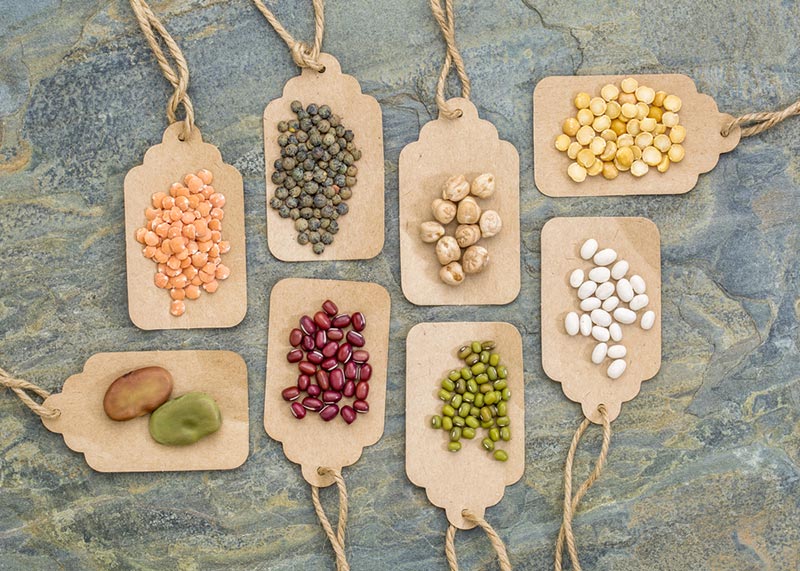An ideal protein substitute for vegetarians should taste great, and satisfy that old desire to chew on something meaty, give you that meaty-chew feeling.
Meat is just one of several vegetarian protein foods you can consume to reach your diet needs, which might surprise several individuals, including us.
In fact, meat is sometimes recommended as one of the last sources you should rely on for your protein source.
A recent study by the 2015 Dietary Guidelines Advisory Committee, the United States Department of Agriculture and the U.S. Department of Health & Human Services, encourages the reduction of meat consumption by Americans (well.org/nutrition/activism-2015-dietary-guidelines-advisory-committee-recommends-less-meat-consumption-for-americans/).
In this study they found sustainable diets higher in plant-based foods, such as vegetables, a variety of culinary mushrooms, fruits, whole grains, legumes, nuts and seeds, and lower in calories and animal-based foods, which were more health promoting and associated with less environmental impact than the current U.S. diet.
Ideal protein alternative
To receive the adequate amount of protein for your diet try these alternative, and healthier, protein sources, courtesy of well.org.
- Algae
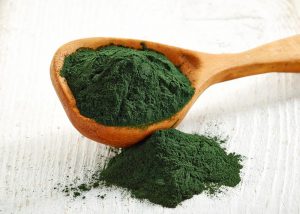 Algae is evolving as a new alternative source of protein. According to Wiki, algae is comparable to other vegan proteins such as rice and soy, as it contains 63 percent protein and a good amount of fiber and micronutrients, among others.
Algae is evolving as a new alternative source of protein. According to Wiki, algae is comparable to other vegan proteins such as rice and soy, as it contains 63 percent protein and a good amount of fiber and micronutrients, among others.
You can find algae in some protein shakes, crackers or bars, cereals and dressings. You can find great tasting, bio-available blue-green algae in our Probiotic Green Drink Powder and in our Shaman’s Blend, the Best Superfood Powder on the market. “Are consumers ready for algae as an ingredient? Yes, they are ready and excited about algae, ” Klamczynska said in a statement. “The more they learn, the more excited they get. Just a little education eliminates any doubts.”
Ideal protein food substitutes
Tempeh
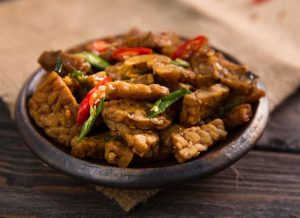 Tempeh is an ideal protein substitute for vegetarians, it’s hearty and delicious, not flimsy like tofu. And not only is tempeh a fermented food packed with probiotics, but it also has a lot of protein, with about 31 grams of protein per cup.
Tempeh is an ideal protein substitute for vegetarians, it’s hearty and delicious, not flimsy like tofu. And not only is tempeh a fermented food packed with probiotics, but it also has a lot of protein, with about 31 grams of protein per cup.
Like the above foods, tempeh is also a good source of fiber and vitamins. It gets better: There is a variety of recipes you can make with tempeh such as pastas, salads and pizza. Tempeh is the ideal textured vegetable protein substitute.
Legumes
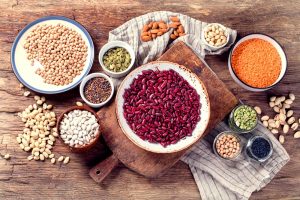 Legumes are also high in protein and good sources of fiber, vitamins and minerals. Legumes contain a huge class of foods, which include a variety of beans, peas and lentils. The amount of protein in legumes varies, but a cup of lentils contains about 17.9 grams of protein, kidney beans contain 16.5 and black beans contain 15.2. A study (sciencedaily.com/releases/2012/10/121022162546.htm) also shows that eating more legumes improves glycemic control and lowers the risk of coronary heart disease in patients with type 2 diabetes.
Legumes are also high in protein and good sources of fiber, vitamins and minerals. Legumes contain a huge class of foods, which include a variety of beans, peas and lentils. The amount of protein in legumes varies, but a cup of lentils contains about 17.9 grams of protein, kidney beans contain 16.5 and black beans contain 15.2. A study (sciencedaily.com/releases/2012/10/121022162546.htm) also shows that eating more legumes improves glycemic control and lowers the risk of coronary heart disease in patients with type 2 diabetes.
Ideal protein vegetarian
Quinoa
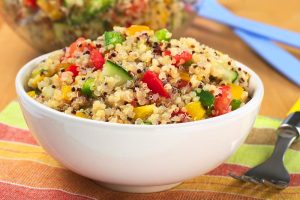 Quinoa has had a good reputation as a protein alternative, and rightfully so. With 9 grams of protein per cup, the tasty grain serves as a solid ingredient in foods, from salads to desserts. The fact that quinoa presents a ton of health benefits is a plus.
Quinoa has had a good reputation as a protein alternative, and rightfully so. With 9 grams of protein per cup, the tasty grain serves as a solid ingredient in foods, from salads to desserts. The fact that quinoa presents a ton of health benefits is a plus.
Quinoa is gluten-free and contains iron, B vitamins, potassium, calcium and more. In addition, eating quinoa may help reduce the risk of cardiovascular disease, type 2 diabetes, high blood pressure, colon cancer and obesity.
That’s not all! Research (sciencedaily.com/releases/2014/01/140121092743.htm) shows that if patients with celiac disease add quinoa to their gluten-free diet, it does not make their condition worse. “The clinical data suggests that daily consumption of quinoa (50 grams) can be safely tolerated by celiac patients (newswise.com/articles/quinoa-well-tolerated-in-patients-with-celiac-disease),” said Dr. Victor Zevallos from the Department of Gastroenterology at King’s College London in a statement.
Cauliflower
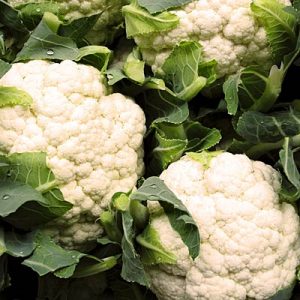
Although it doesn’t contain as much protein per cup – a little more than 2 grams – it’s a tasty meat substitute and also contains vitamin C, potassium and phosphorous. Try cauliflower in a soup or as a pizza crust alternative!
Did you find an ideal protein substitute? You can also try our delicious, protein-rich, macadamia nuts!


